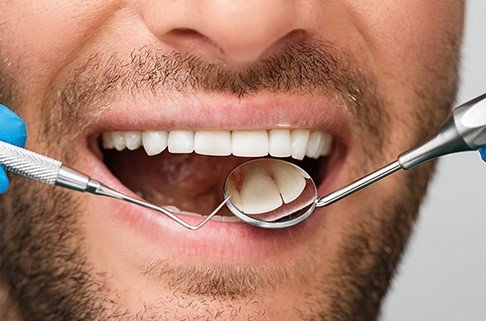Maintaining a healthy smile isn’t just about looks — it’s a lifelong investment in overall health and well-being. The European Federation of Periodontology (EFP) has launched the ‘Oral Health Throughout Life’ campaign to arm people with practical, age-specific advice for maintaining strong teeth and gums from childhood to old age.
Healthy Habits Start Early
A child’s first tooth might seem small, but it marks a major milestone — and a dentist visit should follow soon after. Early dental care is crucial, with guidance on brushing, diet, and oral hygiene playing a vital role in preventing cavities. Research shows around 50% of children experience tooth decay as toddlers. Losing baby teeth too soon can lead to long-term orthodontic issues, making early prevention even more important.
Teenage Years: A Dental Crossroads
For teenagers, the journey gets trickier. Puberty brings hormonal changes that can make gums more sensitive and prone to gingivitis. Combine that with newfound independence — and a tendency to skip brushing or snack on sugary treats — and you’ve got a recipe for cavities.
- A staggering 77% of European adolescents suffer from dental caries.
- Teens aged 16 to 19 face the highest rates.
- Nearly three-quarters (73%) show signs of gum inflammation like bleeding.
It’s a wake-up call to prioritize oral hygiene during these formative years.

Adult Oral Health: More Than Just a Smile
Between 20 and 59, dental caries remains a serious public health issue, affecting anywhere from 40% to 90% of adults worldwide. But the consequences extend beyond the mouth.
Oral health ties directly to 57 systemic diseases, including diabetes and cardiovascular conditions. Regular dental checkups — recommended every three, four, or six months depending on personal needs — are essential to prevent small issues from becoming bigger health problems.
The EFP’s advice? Don’t skip those cleanings. Consistent dental care can mean a healthier body, not just a brighter smile.
Golden Years, Growing Challenges
Aging doesn’t make oral care any easier. By 65, a staggering 96% of adults have experienced cavities, and 20% live with untreated tooth decay. For many, dry mouth (xerostomia) caused by medications adds to the challenge, increasing the risk of decay and infections.
One-third of older adults face this issue — often worsened by polypharmacy, the use of multiple medications.
The EFP recommends seniors:
- Brush with fluoride toothpaste.
- Use interdental brushes for hard-to-reach spots.
- Stay hydrated.
- Visit the dentist at least twice a year.
- Clean and remove dentures nightly.
Taking these steps helps maintain not just oral health, but quality of life.
The Bigger Picture
Despite advances in dental care, oral diseases remain widespread:
| Condition | Affected Population (%) |
|---|---|
| Childhood cavities | 50 |
| Adult gingivitis | Up to 90 |
| Edentulism (tooth loss in seniors) | 23 |
The numbers tell a clear story: oral health affects everyone, and prevention matters at every stage of life. The EFP’s new campaign highlights how simple, age-specific routines can protect teeth and gums — and support better overall health — for a lifetime.
